Speech Language Pathology

List of Services Offered
When you need speech therapy, it can be overwhelming to know where to begin.
- Certified in Vital Stimulation for Swallowing
- Pediatric Feeding
- Auditory Processing Deficits including Dyslexia
- Fluency/Stuttering Disorders
- Language Deficits/Delays including Expressive and/or Receptive
- Articulation and Phonological
- Disorders/ Delays
- Cognitive Deficits/Delays
- Adult Swallowing
- Oral Motor and/or Feeding Delays
- Speech and Language Delays related to hearing loss
- Social Skill Deficits
- Voice Disorders including LSVT
- Dysarthria/Apraxia of Speech
- Cognitive Linguistic Deficits related to brain injuries
- Hanen Program for Autism

Augmentative Alternative Communication
A Speech Language Pathologist can help find the right Augmentative Alternative Communication (AAC device) for you or your loved one. They also help you and the people you talk with learn how to use AAC to communicate. Not every tool works for every person, so it is important to find the right one for you.
We can work with other professionals like occupational therapists and physical therapists if you have different physical skills that affect how you access your AAC system. Some AAC tools are covered by insurance, but some are not. We can help you understand your options.
Speech Language Pathology Services with Alexander and Associates
At Alexander and Associates Outpatient Therapy, our goal is to make finding the right therapy for your child as simple and stress-free as possible.
Types of Speech Disorders:
- Articulation Disorders: Difficulty producing sounds or mispronouncing words to the point where others struggle to understand what is being said.
- Fluency Disorders: Disruptions in the flow of speech, such as stuttering. This involves interruptions like pauses, partial-word repetitions, or prolonged sounds that break the natural rhythm of speaking.
- Resonance (Voice) Disorders: Challenges with pitch, quality, or volume of the voice that distract listeners from the message being conveyed. These issues may also cause discomfort or pain for the child.
Types of Language Disorders:
Language disorders fall into two main categories: receptive and expressive.
- Receptive Disorders: Difficulty understanding or processing what others are saying.
- Expressive Disorders: Problems forming coherent thoughts, using an appropriate vocabulary, or demonstrating pragmatic language skills. Pragmatic language includes not only the content and structure of speech but also non-verbal communication, such as eye contact and body language.
